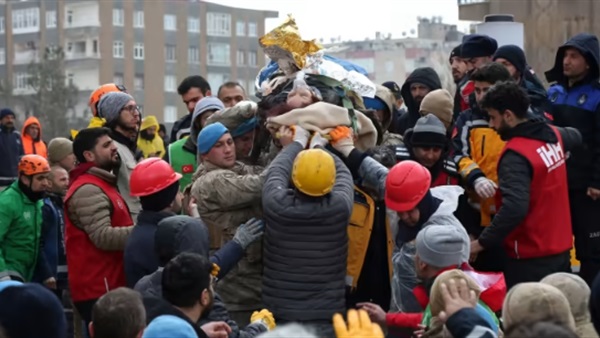Devastating Earthquake in Turkey and Syria claims 5,000 lives

A massive earthquake measuring 7.8 on the Richter scale has
struck the border region between Turkey and Syria, killing at least 5,000
people and injuring many more. The earthquake, which struck in the early hours
of Monday, was the worst to hit the region in eight decades and caused
widespread devastation, toppling thousands of buildings. Despite the best
efforts of rescuers, the toll is expected to rise as the search continues for
survivors trapped in the rubble.
Difficult conditions hamper rescue efforts
The rescue efforts are being hampered by the aftermath of
the earthquake, including the ongoing aftershocks, freezing temperatures, and
damaged roads. These factors are making it difficult for rescuers to reach
those affected and provide the necessary assistance. In addition, the low
quality of buildings in the affected region has contributed to the high death
toll, as many of the buildings were not designed to withstand such a strong
earthquake.
Aid organizations respond to the disaster
Aid organizations are rushing to provide basic necessities
and calling for blood donors as the humanitarian toll continues to mount. The
Turkish Red Crescent is shipping emergency supplies non-stop, including 2,000
tents and 27,000 blankets, as well as mobile kitchens and catering facilities.
Teams of Turkish rescue workers have been filtering through Istanbul’s main
airport since Monday, waiting for flights to the affected areas. Turkish
authorities have closed roads to hard-hit cities for two days to anyone besides
rescue and aid vehicles.
Economic fallout of the earthquake
The earthquake has had a significant impact on the Turkish
economy, with the benchmark Bist 100 stock index tumbling 7 percent, triggering
curbs designed to smooth panicky trading. The Turkish lira has also hit a new
low, with experts attributing this to the government’s unorthodox policy of
lowering interest rates despite high inflation. To help mitigate the economic
impact of the disaster, Turkey’s central bank has ordered local lenders not to
charge transaction fees on fund transfers to earthquake relief accounts and has
eased conditions on certain types of credit extended to companies in the
affected region.
Rescue workers race against time
Despite the difficult conditions, rescue workers are doing
everything they can to help. Sinan Aksoy, a firefighter who was on his way to
one of the affected cities, said: “We have to do everything we can to help.
We’re running against time to find people alive.” The rescue efforts are
continuing around the clock, with the goal of finding survivors and providing
aid to those in need.







